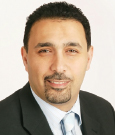Formal discussant Hisham Mehanna, PhD, Chief of Head and Neck Surgery and Director of Head and Neck Studies and Education at the University of Birmingham, United Kingdom, congratulated Dr. D’Cruz on conducting an ambitious and difficult trial. “Like all studies, it has flaws, but the study has helped resolve an important outstanding controversy, and the data from the study have the potential to solve more controversies,” Dr. Mehanna noted.
With longer follow-up, the role of ultrasound-guided surveillance vs clinical surveillance (from the second randomization) will become clear. The large repository of tissue samples from the trial will allow the study of biomarkers to determine which patients will go on to develop more nodal metastases.
Dr. Mehanna pointed out that one-third of newly diagnosed patients who have node-negative disease on clinical and radiologic examinations actually have occult nodal metastases. “Some node-negative patients will develop metastasis. Reoperations for these patients incur additional costs and toxicities. The advantages of elective neck dissection include reduced risk of recurrence, low morbidity, and negligible effect on quality of life. Some trials even show better survival, but about 5% of patients can have significant complications and shoulder disability,” he continued. “It is not an easy randomization to sell to patients.”
“The results are astounding. The survival benefit [with elective node dissection] in patients with nodal metastasis was significantly better in the node-positive patients in the elective surgery group than in those with nodal relapse in the therapeutic surgery group—over a 20% benefit. This is because when patients recur, they tend to have more advanced nodal disease, which is essentially a death sentence,” he explained.
More to Learn
Dr. Mehanna would like to have seen more data on who got adjuvant therapy, the quality of radiotherapy, the dose of chemotherapy, quality of life, and cost.
“It is important to know if there is a survival difference in those who got adjuvant therapy and those who did not,” he said. Also, he looks forward to having the data on the type of follow-up in the future (ie, ultrasound-guided vs clinical surveillance). “The absence of this data limits our ability to make full recommendations,” he told listeners. Additionally quality-of-life and cost data are important for informing decision-making, and these data were not included.
“At this time, we can say that in centers that do surveillance by clinical exam [ie, low-resource areas], we recommend elective neck dissection as standard of care instead of clinical surveillance, especially for tumors with > 3 mm thickness. We can’t make that recommendation regarding ultrasound-guided surveillance with the data we have at present. We await further results.” ■
Disclosure: Dr. Mehanna reported no potential conficts of interest.


